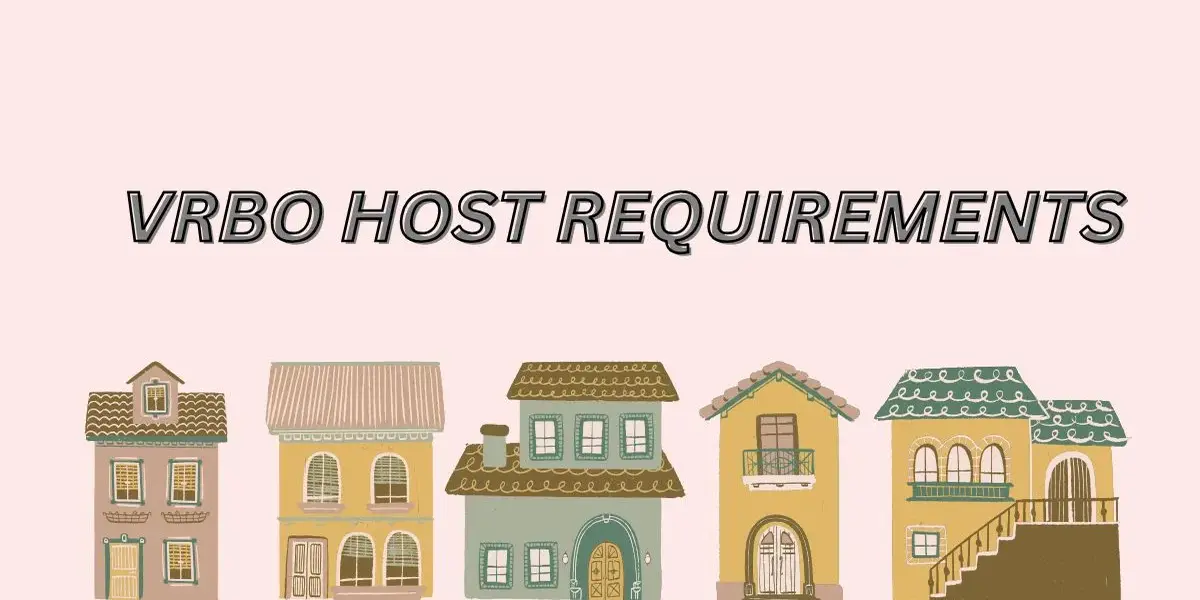Introduction
Becoming a VRBO host offers an exciting opportunity to earn income by renting out a property to travelers. However, before you can open your doors to guests, there are certain VRBO host requirements that must be met. These guidelines are designed to ensure the safety, comfort, and satisfaction of both the host and the guests. Whether you’re new to the world of vacation rentals or are considering joining VRBO as a host, understanding these requirements is crucial. From creating an appealing listing to adhering to local laws and maintaining your property, every step in the hosting process comes with its own set of responsibilities. This comprehensive guide will cover the necessary steps and expectations for VRBO hosts, including what you need to know about listing your property, insurance policies, communication, pricing, and safety standards. By the end of this article, you will have a clear understanding of what it takes to become a successful VRBO host while meeting all necessary guidelines.
Understanding VRBO Host Eligibility
To become a VRBO host, one of the first things you need to do is confirm that your property is eligible. This typically involves owning a property or having permission from the property owner to rent it out. VRBO allows hosts to list single-family homes, apartments, condos, cabins, and even unique accommodations like treehouses or yurts. However, there are some restrictions that may apply depending on your location. For instance, local zoning laws or HOA rules may prohibit short-term rentals. It’s important to research local regulations and ensure your property meets the legal requirements for short-term rentals.
In addition to property eligibility, VRBO has a standard for host eligibility that requires potential hosts to provide accurate and truthful details about their listing. This includes providing photographs of the property, writing a clear and compelling description, and outlining the amenities available. VRBO also requires hosts to be responsive and communicative with potential guests, which helps build trust and create positive rental experiences.
Creating a Compelling Listing
A key requirement for VRBO hosts is creating an attractive and informative listing. Your listing is essentially your marketing tool, and it should be designed to make your property stand out from the competition. To do so, you should include high-quality photographs of both the interior and exterior of your property, highlighting the unique features that make it appealing to guests. Clear, well-lit photos help potential guests get a true sense of the space, its amenities, and its atmosphere.
In addition to visuals, your listing description should be detailed and honest, clearly outlining the features of your property, the number of bedrooms and bathrooms, and any additional perks that guests can enjoy. Be transparent about any limitations or potential issues, such as stairs, parking restrictions, or noise levels, so guests can make informed decisions. Clear communication in your listing ensures that expectations are set from the start, which can lead to positive reviews and repeat guests.
Establishing House Rules and Expectations
House rules are an essential part of being a VRBO host. They help establish boundaries and ensure that guests know what is expected of them during their stay. These rules should be communicated clearly in the listing and reiterated during the booking process. Common house rules include policies on smoking, pets, parties, noise, and parking. You should also establish guidelines for check-in and check-out times, as well as any additional fees, such as cleaning fees or deposits.
It’s important to maintain a balance when creating house rules—being too strict may deter potential guests, while being too lenient could lead to disruptive stays. Finding a middle ground that ensures comfort, respect, and safety for both you and your guests is key. Consider including a brief welcome guide or instructions that outline how guests should interact with your property, like how to operate appliances, dispose of trash, or maintain cleanliness.
Pricing and Payment Requirements
Setting the right price for your property is essential for attracting bookings while ensuring you’re maximizing your earnings. VRBO offers a pricing tool that allows hosts to adjust rates based on factors like seasonality, demand, and the local market. Researching similar properties in your area can help you set competitive rates. Keep in mind that VRBO charges a service fee to both hosts and guests, which can vary based on the total booking amount. Hosts may also need to account for taxes and cleaning fees when setting prices.
When it comes to payment, VRBO offers a secure platform that allows hosts to receive payment directly. The platform processes payments, so hosts don’t need to worry about handling transactions themselves. Payment schedules vary, but typically hosts receive their payments about 24-48 hours after check-in. Setting clear expectations about payment terms, including any cancellation policies, helps prevent misunderstandings and ensures a smooth financial transaction for both parties.

Providing a Safe and Clean Environment
One of the most important VRBO host requirements is ensuring that your property is safe and clean. VRBO has set specific standards that hosts must meet to maintain high levels of cleanliness and safety for guests. Your property should be thoroughly cleaned between each guest’s stay, and cleaning supplies should be made available for guests during their stay. High-touch surfaces, such as door handles, light switches, and remote controls, should be disinfected regularly.
Safety is another key concern for hosts. VRBO requires that all properties meet basic safety standards, including the installation of smoke and carbon monoxide detectors, fire extinguishers, and first-aid kits. Depending on the location, you may also need to ensure that your property complies with additional local safety regulations. Providing safety instructions, such as emergency exit routes or contact information in case of an emergency, can help guests feel more secure during their stay.
Insurance and Liability Protection
As a VRBO host, you are responsible for ensuring that your property is adequately insured. While VRBO provides a host protection insurance program, it’s still essential to check with your own insurance provider to make sure that you have appropriate coverage. Some standard homeowner policies may not cover short-term rentals, so it’s important to discuss your plans with your insurer to ensure you’re adequately protected.
VRBO’s Host Guarantee program provides protection in the event of property damage by guests, but it doesn’t cover everything. For example, the program doesn’t cover loss due to theft, wear and tear, or damages to personal items. Hosts are encouraged to purchase additional insurance or supplemental coverage if needed to avoid unexpected costs.
More Read: Charalabush How To Buy
Guest Communication and Reviews
Effective communication with guests is a key component of being a successful VRBO host. From the moment a guest inquires about your property to the time they check out, you should be available to answer questions, provide additional information, and offer assistance as needed. Prompt, clear, and professional communication helps build trust and ensures that the guest experience is smooth and enjoyable.
Encouraging guests to leave reviews after their stay can significantly boost your reputation as a host. Positive reviews not only increase your credibility but also improve your chances of being featured in search results. It’s important to respond to reviews, both positive and negative, as it shows that you care about guest feedback and are committed to providing a great experience.
Conclusion
Becoming a successful VRBO host requires more than just listing a property; it involves understanding and meeting specific requirements to ensure a safe, clean, and welcoming experience for guests. From eligibility and listing creation to pricing, safety, and guest communication, there are several factors that contribute to being a successful VRBO host. By adhering to the platform’s guidelines and providing a well-maintained and comfortable environment for your guests, you can enhance your chances of receiving positive reviews and building a reputation as a trusted host. In addition to these requirements, it’s important to continuously improve your hosting skills by learning from guest feedback, staying updated with VRBO’s evolving policies, and adapting to market trends. With careful attention to detail, responsiveness, and commitment to quality, becoming a VRBO host can be a rewarding and profitable venture.
FAQs:
What is the VRBO Host Guarantee, and what does it cover?
The VRBO Host Guarantee provides protection against property damage caused by guests, but it doesn’t cover theft, wear and tear, or damage to personal belongings.
How can I set the right price for my VRBO property?
Use VRBO’s pricing tools to adjust rates based on demand, local market conditions, and seasonality. Research similar properties in your area to stay competitive.
What should I do if my property isn’t eligible for VRBO?
If your property doesn’t meet the eligibility requirements, check local regulations and consider making necessary changes, such as complying with zoning laws or obtaining permission from the property owner.
What types of properties can be listed on VRBO?
VRBO accepts various property types, including single-family homes, apartments, condos, cabins, and unique accommodations like treehouses and yurts.
Visit for more, Truswiki











